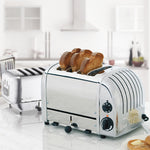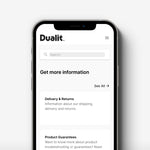Top Tips for Weaning
With your baby ready to start their weaning journey, Dualit looks at the best ways to introduce new, exciting and healthy foods to your little one, whilst ensuring that all their dietary needs are met. We'll be discussing how to identify the signs that your baby may be ready to begin weaning, how to prepare their meals, the best foods to include in their diet and a few foods to avoid. Remember, every baby is uniquely individual and may reach milestones at different times. Remain patient and, instead, enjoy the start of what can become a healthy, happy relationship with food.











